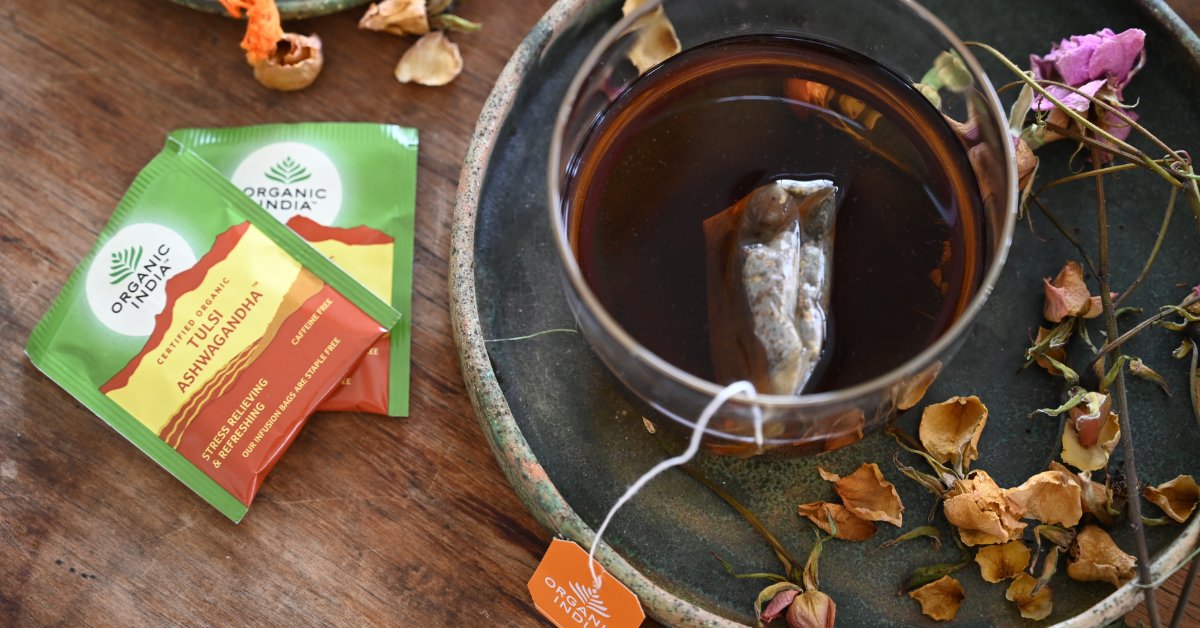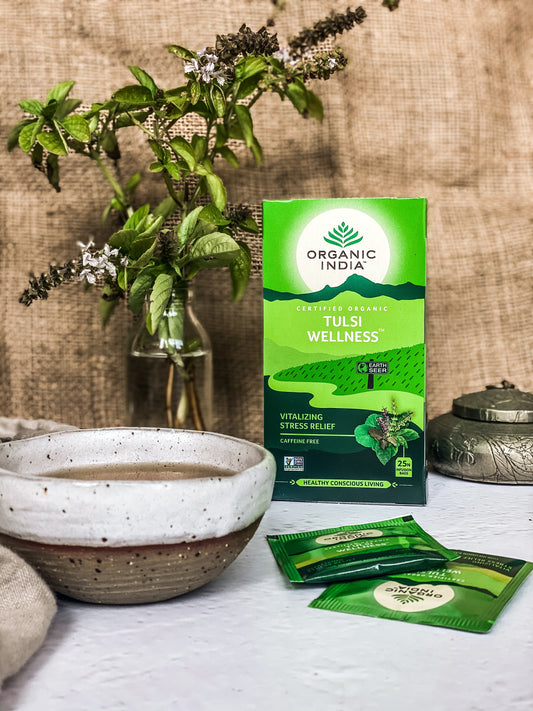A quarter of a million years ago, our ancient ancestors developed an intelligence unique to this world — the ability to use their minds not only for the most practical purposes, but also for self-reflection. Looking back, we marvel at how they contemplated the deeper meaning of life, figured out complex problems, passed along technology to successive generations, and observed their sense of self. All of these things, and more, were resultant from a highly evolved brain; but it has taken millennia for our species to begin to understand the brain’s intricacies and power, beginning with its fundamental neurons that set bodily action and thinking processes in motion. And, thanks to Ayurveda, the most ancient form of healthcare, we have long understood that certain herbs feed the brain to optimise thinking, reduce stress, and boost memory.
It is said that neuroscience, though quite elementary, began around the time that Siddhartha Gautama sat in meditation, beneath a fig tree, before he emerged as the enlightened Buddha. At this same time, 2,500 years ago, the Greek father of medicine, Hippocrates, argued that the brain is the seat of thought, sensation, emotion, and cognition. The Greek philosopher Aristotle declared that the seat of the mind is in the heart. This latter appraisal agreed with the even more ancient culture of the Vedic gurus of India. We can still find their unbroken teachings, in preserved texts, to this day. The 20th Century Indian sage Ramana Maharshi said that the heart is the seat of the sense of “I.”
How to Feed the Brain
Modern neuroscientists are still trying to figure out how the brain helps us know ourselves, the environment, and the teachings that are at our disposal. And researchers are uncovering sources of nutrients and biochemicals needed for the organ’s diverse and myriad functions — from finding one’s keys to reflecting on the core of one’s own being. The best place to begin is with Ayurveda, the ancient Indian health practice that still uses nature’s whole and unaltered plants as brain food.
The American Institute of Vedic Studies teaches that the brain secretes powerful chemicals to create extraordinary changes in the body and mind. These secretions are influenced and enabled by certain foods, herbs, impressions, breathing exercises, mantras, meditation, and a range of Yoga and Ayurveda practices, “working through nature rather than outside of it. Cultivating the ecology of the brain is central to health and well-being for the twenty-first century and its continuing high tech developments.”
Published research in the journal Evidence-Based Complementary and Alternative Medicine reported that popular Ayurvedic healing plants and formulations are used to slow down brain aging and enhance memory. Among these are Ashwagandha, Turmeric, Brahmi, Shankhpushpi, Gotu Kola, and Guggulu. Ayurveda also employs several herbs for the treatment of nervous system disorders, including the memory loss typically seen in older adults. In recent years, researchers have noted a renewed interest in the use of phytochemicals for addressing memory issues and cognitive function, because drug treatments are often inadequate and lead to many side effects. The difference between Ayurvedic herbs and drugs is holism versus reductionism: Drugs are isolated chemicals, while nature’s plants work synergistically — with not only the whole body, but also with nature’s innate elements.
Six Nootropic Herbs for the Brain
While there are many nootropic herbs — plants that improve cognitive function, memory, creativity, and motivation — let’s look at a few of the most celebrated in the Ayurvedic health cabinet.
- Ashwagandha is a known adaptogen, or anti-stress agent, that provides a number of healthful effects, such as a youthful state of physical and mental health, and an increase in happiness. Healthline reports that Ashwagandha also provides numerous other benefits for your body and brain — boosting brain function, lowering blood sugar and cortisol levels, and helping fight anxiety and depression.
- Turmeric is perhaps the most used herb in India, and around the world, especially as a spice in cooking. It has a great many health benefits, including as an immune-booster, and is quite useful for the brain, as well. One of the main issues with brains affected by certain brain-related memory problems is the buildup of clumps of a protein called amyloid-beta. The latest studies on turmeric show that curcumin, turmeric’s active ingredient, has the ability to cross the blood-brain barrier to help clear these plaques. Curcumin also increases the level of a brain hormone that protects neurons (nerve cells), improves neuron function, and encourages the growth of neurons.
- Bacopa protects brain cells and increases brain chemicals associated with learning and memory. Researchers have shown the herb is helpful in cases of memory issues, cognitive difficulties, anxiety, and inability to focus, and has long been used for fighting stress and improving memory. Traditionally, says family physician Svetlana Kogan, MD, bacopa has been used to clarify the chakras and the mind. “It’s very useful for people with chronic fatigue syndrome, people with trouble focusing, and attention deficit disorder,” she said.
- Shankhpushpi is an herb with the uncommon capacity to boost memory and act as a brain tonic that improves intelligence and function. This plant helps reduce mental fatigue and contains antioxidants and flavonoids that improve memory capacity, focus, concentration, calmness, alertness. People taking shankhpushpi have also reported improved reasoning, problem-solving, and other cognitive abilities. The plant’s neuroprotective elements help prevent memory loss.
- Gotu Kola is another Ayurvedic herb that supports brain function. Contrary to a common misconception, Gotu Kola does not contain caffeine, though it does give your brain an energy boost. It is commonly believed in the East that this herb is imbued with the capacity to increase longevity — especially because elephants, who have a fondness for dining on the plant, have such a long life-span. Gotu Kola has traditionally been used in cases of mental fatigue, anxiety, depression, memory loss, and insomnia. Modern medical researchers report that the plant has neuroregenerative capacity, or the ability to create new nerve cells.
- Guggulu is a plant known for its antioxidant value and ability to decrease oxidative stress — meaning, it works to protect the brain’s cells from oxygen-robbing molecules that tend to create disease, reduce function, and cause premature aging. Guggulu was first introduced to the Western scientific world in 1966, by Indian medical researcher G. V. Satyavati, as an aid to address cardiovascular issues. Now the herb is used for an array of health purposes, including as an anti-inflammatory agent.
Mind Over Brain
A great many experts have weighed in on whether the brain and the mind are separate entities. Western material science claims that the mind is an artifact of the brain; Eastern sages with experiential knowledge have demonstrated that the mind relates to the brain, and affects it, yet is not connected to it. Either way, both schools of thought agree that a healthy brain allows us to think more clearly, live happier lives, learn more easily, remember things important to us, and enjoy our capacities for reason.
It is up to each of us to delve into the depths of meditation to know what is real and how such findings are useful. In the meantime, if you need to boost your brain function, try sipping on Ashwagandha tea or tulsi turmeric tea. And keep in mind that Ayurveda’s herbs are natural resources that modern scientists are only just now recognising for their usefulness.












